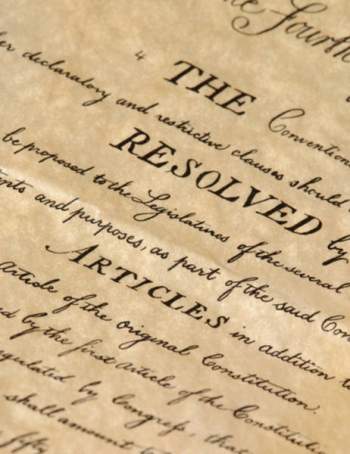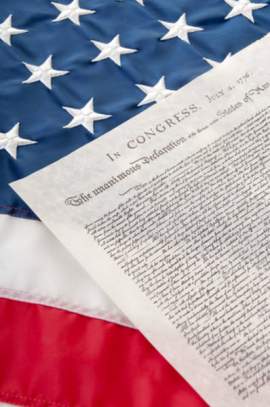
Understanding the 4th Amendment

Popular In Constitution
Purpose Of Lifetime Appointment And Pros And Cons Enumerated Powers Bicameral Legislature Background Article 3 Of The Constitution We The People 1st Amendment Who Wrote The Constitution Judicial Review Equal Protection Clause 5th Amendment 10th Amendment Three Fifths Compromise
Included in the Bill of Rights, the Fourth Amendment is a form of protection to individuals or citizens of the United States from unfair or unlawful treatment by law enforcement authorities. Even though its adoption has its roots in English law, it is undoubtedly included in the Constitution as the 4th Amendment due to questionable or unlawful treatment of citizens by British military in the Thirteen Colonies.
The Fourth Amendment protects American citizens from a search and/or seizure conducted without reasonable doubt. The Fourth Amendment also extends further protection by requiring that warrants be issued and sanctioned by law in order to conduct a search and seizure. Furthermore, a warrant will only be issued if probable cause can be proven.
The 4th Amendment provides for extra requirements and protection of citizens due to the abuse of the writ of assistance during the American Colonial Period. The writ of assistance was a type of general search warrant that was employed by tax collectors to search the homes of the colonists and seize goods, which was commonly abused and the collectors would often just seize what they wanted.
The common abuse of the writ of assistance led way to much dispute by the colonists and the matter was brought to court. Suffice it to say, the courts ruled against the colonists and their denouncing of the writ of assistance. John Adams, historical American figure and President, would term the proceedings and occurrences during the court hearings as the "spark" for the American Revolution.
The Fourth Amendment is written into the Constitution as follows: "The right of the people to be secure in their persons, houses, papers, and effects against unreasonable searches and seizures, shall not be violated, and no Warrants shall issue, but upon probable cause, supported by Oath or affirmation, and particularly describing the place to be searched, and the persons or things to be seized." The 4th Amendment, at its most basic application, can be deemed as a protection of private property and privacy. These inherent civil and human rights are not to be violated or infringed upon unless it is necessary under law with just cause.
Typically, a search and seizure is to be conducted by a member of law enforcement. In order to engage in such action, a law enforcement officer must first secure a warrant, which is to be judicially sanctioned and considered as reasonable. An officer will be sworn under oath to the warrant and will often support the necessity for a warrant by probable cause.
Under the 4th Amendment, searches and seizures apply to governmental factions, but not those carried out by citizens or organizations with no ties to the Government itself. Originally, the Fourth Amendment was to apply only to the Federal Government, but a Supreme Court case held that it is also applicable to State governments under the Due Process Clause of the Fourteenth Amendment.
Furthermore, the 4th Amendment is only subject to matters of criminal law, and not those of civil law. The Fourth Amendment still proves to have importance today, for it still protects citizens from any law enforcement authority from overstepping its boundaries and violating civil rights granted by the Constitution.


















